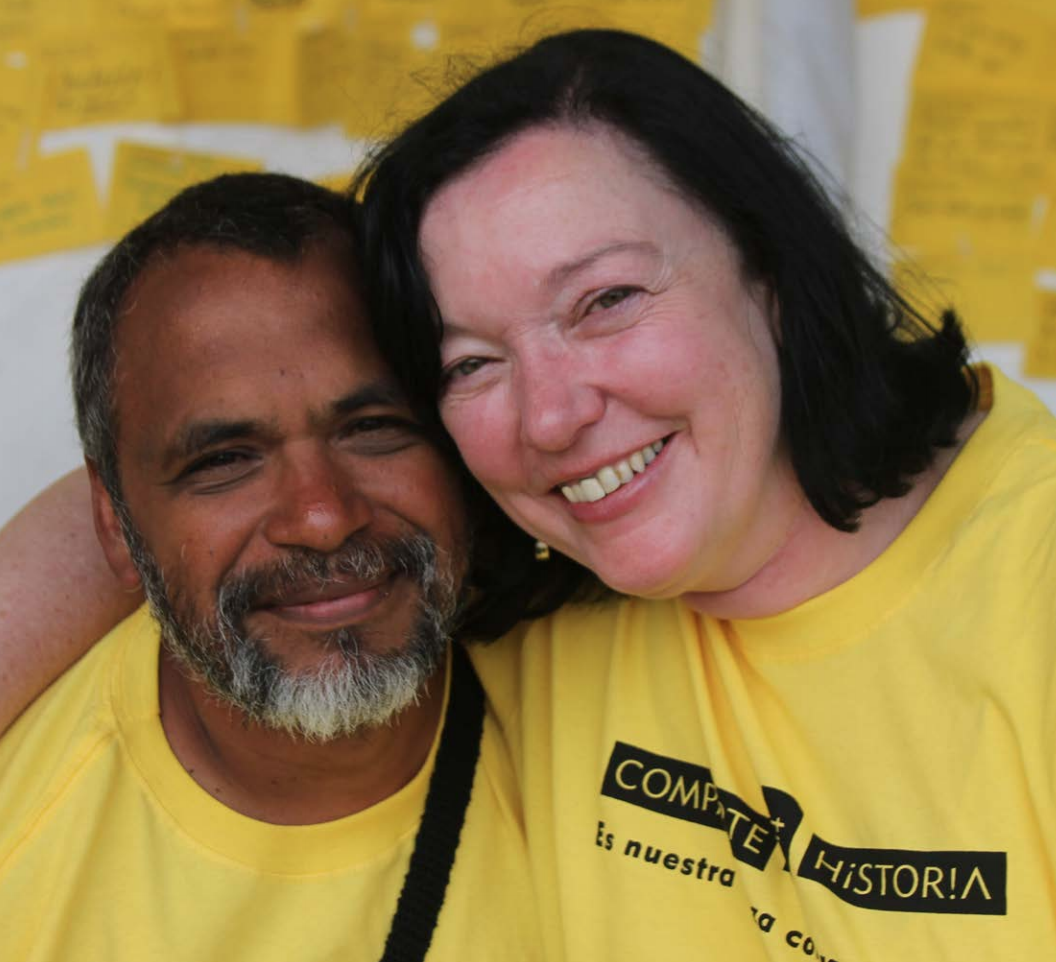Let’s start a conversation
With a topic as complex as cancer there are many questions. And, it can get overwhelming. You might not know where to start and how to work through the questions you have – as someone interested to learn more about cancer, or as the person diagnosed with cancer or the person in their support network.
In some cultures, cancer is still a taboo subject and universally, for many of us, it’s tough and uncomfortable. Yet, talking about cancer openly raises awareness, improves outcomes, and can ultimately save lives. There are no hard rules on how to talk about cancer just as there is no ‘right way’ or ‘wrong way’ for you and your family and friends to cope with cancer.
This is only meant as a guide for you to find the best way to start talking about cancer.
Talking about cancer in general
We encourage you to use your voice and talk to your family, friends and network. Having personal conversations about an issue that is important to you can be incredibly powerful in raising awareness and understanding of cancer, and ultimately help create action. Not sure where to start? Take a look at the Key Issues on the World Cancer Day website which can help to spark a new and perhaps surprising conversation about cancer.
Talking to someone with cancer
For a person diagnosed with cancer, friends, families and colleagues can play a major role in providing emotional, social and practical support. Take your cue from the person as everyone deals with their own cancer diagnosis and journey differently. Even if you’re not sure about how best to approach the conversation, sometimes it’s better to talk than avoiding the conversation altogether. The following suggestions may help you approach your conversations so you feel best prepared.
Preparation
Try to process your own feelings beforehand
Be aware that your own experiences can affect how you react
Learn about the diagnosis through reliable sources so that you’re as informed as possible
Be open
Spend time with the person
Ask if they would like to talk about their experience
Let them decide what and how much to share
Be willing to talk about their experiences and allow the other to share their fears
Be available to talk as often as they wish, and be sensitive if the person would like space
Talk about things other than cancer
Offering support
Offer assistance, even with small tasks and check what would be most helpful (sometimes people have an abundance of food, but no-one to walk the dog)
Ask if they would like help. If so, offer help in specific, concrete ways and follow up on your commitment
Some further guidance for consideration:
Avoid comparing their situation with those of other people you may know with cancer, in particular sharing “doom and gloom” stories
Avoid talking in generalities about the odds of recovery or survival, or downplay the situation
Try not to show false optimism or hope
Avoid using language that may inadvertently make the person feel guilty (e.g. “You can beat this”, “You must fight”, “Don’t give up”)
Avoid asking distressing questions like “How long have you got?”
Avoid bringing up new, alternative cures you may have read about
Avoid bringing religion into the conversation
Respect their privacy and let them tell others
Avoid making the conversation centred around you and overburdening them with your own feelings
Apologise without defensiveness if you feel you have said something wrong
Take your cues from them at any particular moment – some days may be better for talking and other days they may not feel like talking, and some people are more open and others more private
Respect their choices and avoid imposing your own opinions of what you think you would do in regards to treatment and care
Listen if they are upset rather than rushing to cheer them up
What you might say when you’re not sure what to say:
“I’m not sure what to say, but if there is anything that I can do to help, I am here for you.”
“I’m very sorry to hear you’re going through this.”
“If you just want to talk, I am happy to listen.”
“Always feel free to let me know if you want or need anything.”
“I heard what’s happening, and I’m sorry”
Some questions you can ask:
“How are you doing?”
“Tell me what you would you like me to do to help”
“Do you want to talk about it?”
Talking about cancer in the workplace
If you work with someone or employ someone with cancer, explore ways to support your team member to continue to actively contribute
Consider job modifications such as job sharing, working from home, flexible hours etc.
Explore and consider offering workplace support programmes
Be considerate of the information your team member or colleague wishes to share with others
Ask them the type of support they would welcome
Provide support to co-workers and give them the opportunity to express their anxiety and feelings
Keep the conversation open and honest
Talking to children
Speaking to children about cancer isn’t always easy but it is important to address any concerns or anxiety they may have. For parents and teachers alike, there are ways in which children can learn about cancer in a supportive environment.
Be honest
Children respond well to specific details
Use simple language
Explain where the cancer is in the body, how it will be treated, that it cannot be caught and it is not their fault
Explain why they may not be able to play or do the things they are normally used to with you or the person they know with cancer
Repeat your explanations
Encourage questions and respond to each question specifically
Ask them about their feelings
Listen to their fears
Assure them they will be loved and cared for, whatever happens
Update them with small pieces of news rather than everything at once
Talking about cancer when you have cancer
You don’t have to tell to everyone about your diagnosis but it is an opportunity to be open with your trusted, loved ones
Rely on people close to you who you feel comfortable talking to. It’s also okay to not share this information with everyone
Keep the lines of communication open: make a regular schedule to have private, quiet conversations where you won’t be distracted or rushed
Be open to talking about more difficult topics such as fear of recurrence or financial concerns
Don’t hesitate to ask for support but know that it’s okay if you don’t know what support you might need
And, if on days and moments you don’t feel like talking about cancer, that’s okay too.

